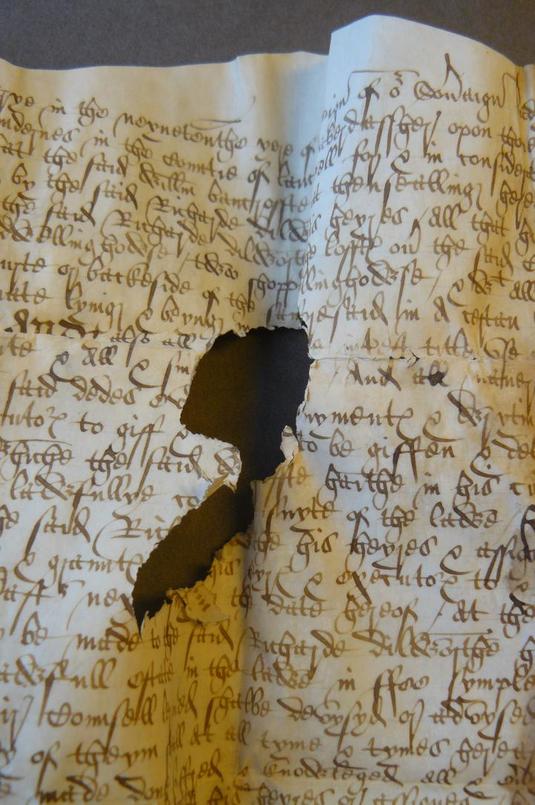This article is more than 1 year old
Boffins: We have found a way to unlock the MYSTERIES OF SHEEP from old parchments
And it's not by reading the stupid writing on them either
Top-level boffins say they have discovered a valuable new tool for mapping the genetic history of sheep: namely, the extraction of DNA from old documents, which are generally written on parchment made from the skin of sheep or other animals.
It seems that before such modern innovations as mass production of paper, typewriters etc, most legal documents would be written on parchment produced by peeling a handy sheep, or perhaps a goat or a calf.
The great thing about this is that legal documents are normally exactly dated and carefully preserved. Unlike bones, for instance, you don't need to dig them up - they're already in archives ready organised.

Sod the writing, let's have a look at the DNA
This means that the world's supply of old parchments is now "an unrivalled resource to analyse the development of livestock husbandry across the centuries".
"This pilot project suggests that parchments are an amazing resource for genetic studies that consider agricultural development over the centuries," enthuses Professor Daniel Bradbury of Trinity College Dublin. "There must be millions stored away in libraries, archives, solicitors' offices and even in our own attics. After all, parchment was the writing material of choice for thousands of years, going back to the Dead Sea Scrolls."
Bradbury and his colleagues' results showed that the sheep which produced the first parchment sample they tested showed a strong similarity with northern British breeds such as Swaledales and Scottish Blackface, whereas the second sample was more closely related to breeds from the Midlands and Southern Britain.
By using many samples of parchment, a long history of livestock could be built up to show how the definitive regional breeds came to be. Before the 18th century, the traits sheep were born with were based largely on chance.
The 18th-century agricultural pioneer Robert Bakewell changed this by establishing selective breeding of sheep - as well as horses and cattle. Renowned boffins Charles Darwin and Gregor Mendel were later influenced by his ideas.
The new developments are laid out in full boffinry detail in the learned journal Proceedings of the Royal Society B, here. ®
